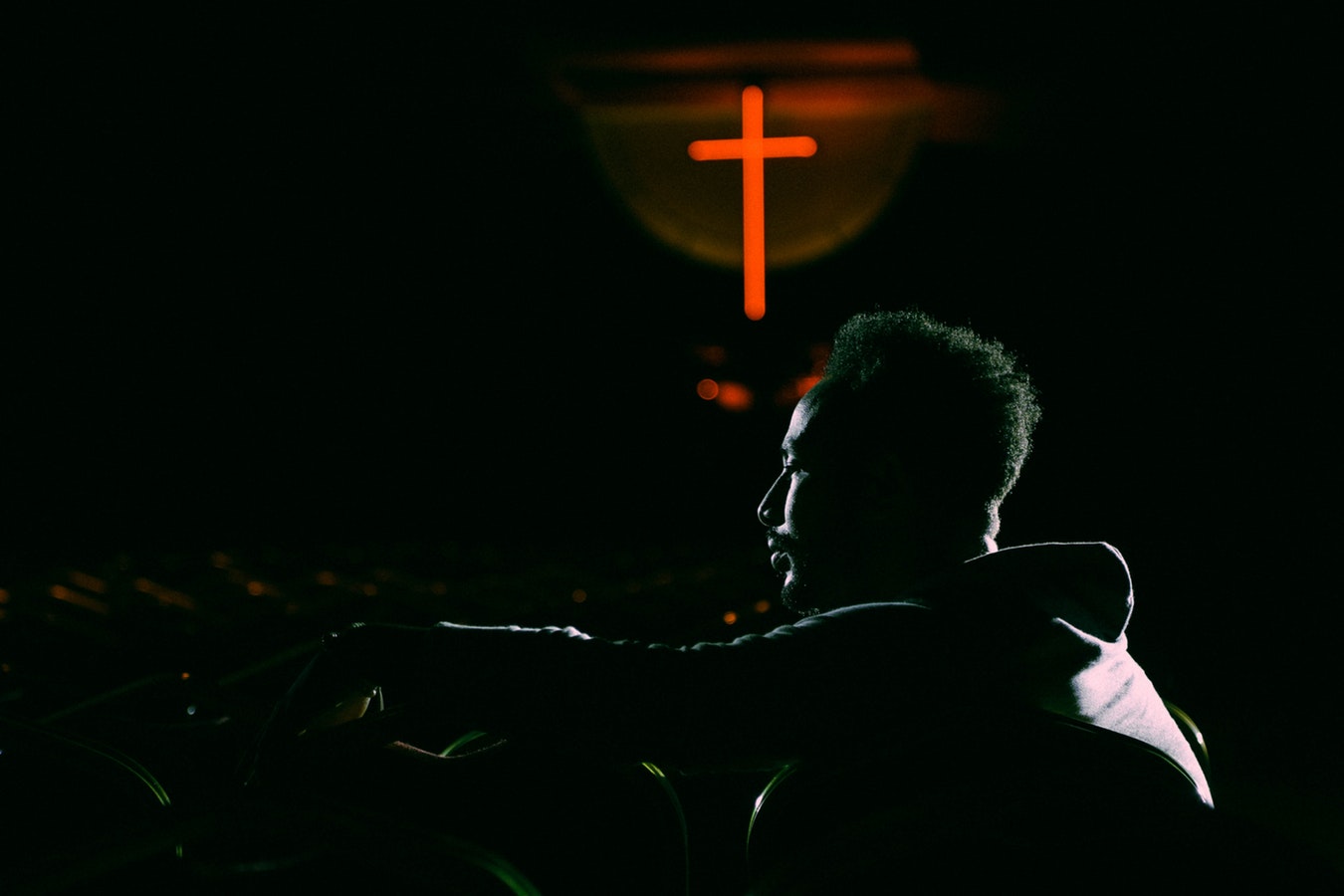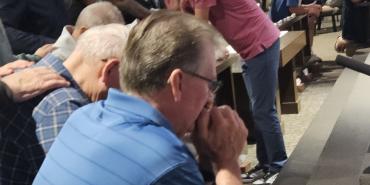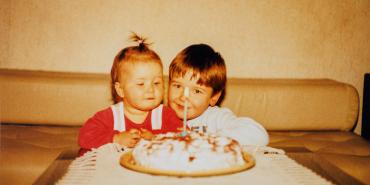Finding Value in the Undignifed

A former trapeze gymnasium seems to be an unlikely location for a Church of the Nazarene. Acrobats once teetered on tightropes just above the place where a strange cross hangs on the wall. Fashioned out of chicken wire, the hollow cross is stuffed with fast-food wrappers, cigarette packets, beer cans, and confessional notes.
Welcome to the Church of the Undignified—an eclectic band of Nazarenes that includes former addicts, ex-gang members, and reformed sex workers. Many who walk through the doors of this church in Seattle's Capitol Hill district find freedom from addictions and harmful lifestyles. Others come to place their burdens—literally—at the wire-framed cross. They deposit their drug vials and vodka bottles, and then slip out.
"The beauty of the cross to us is that it takes away all our junk," explains 32-year-old pastor Benji Rodes. Since opening its doors three years ago, the Church of the Undignified has focused on serving the underprivileged, those addicted on drugs, and social dropouts. "We've always felt that the poor are the chosen," says 29-year-old Abbi Rodes, Benji's wife. "They were the ones that Jesus was near to, and it's a privilege to be with the poor."
The church takes its name from 2 Samuel 6:14-22, which records King David leaping and twirling, dressed only in a thin cloth as he danced before the Lord. The unstately public display caused his wife, Michal, to despise him. David responded: "...I will celebrate before the Lord. I will become even more undignified than this, and I will be humiliated in my own eyes (2 Samuel 6:21-22)."
"Like David, we're prepared to appear foolish in others' eyes," says Pastor Rodes. "We will dance and celebrate before the Lord because He has set us free." Accordingly, worship times at the Church of the Undignified are quite an experience. African drums beat a frantic rhythm, worshipers write verses on the poetry wall, and an artist paints with watercolors. The services, Rodes admits, might shock some churchgoers.
But the Undignifieds (as they call themselves) don't want to be judged by their unorthodox expressions of adoration, their peculiar venue, or their unusual cross. Instead, they point to the fruit of transformed lives.
Hannah Chung-Cornman is one of those changed people. As a pastor's kid, Hannah Chung-Cornman rebelled. "I felt everyone in the church was always watching me and wondering, 'What's she wearing? What's she doing?'" she recalls. "The hypocrisy made me feel sick." When she was in her early 20s, Chung-Cornman moved to Capitol Hill where she dabbled in drugs, alcohol, and witchcraft. She hit rock bottom during an affair with a married man, and attempted suicide. While at the end of her rope, Chung-Cornman walked into the Church of the Undignified.
She was overcome by the warmth of the people and the Holy Spirit whispered to her: "You are okay now . . . you are mine." Now, two years later, Chung-Cornman, plans to attend seminary and become a chaplain. She says the Church of the Undignified continues to draw people like her because its love and acceptance is real. "Recently, a man came soaked in urine," she says. "Immediately, people went to talk to him and invite him into our building. This is what Jesus wants. He wants us to be undignified for Him."
Strolling home from work in Seattle's business district, Chung-Cornman's husband, Aaron, encountered a homeless woman. Instead of ignoring her as everyone else was doing, he invited her to dinner and talked to her about Jesus. This missional mindset permeates the church. Several of the church's young professionals choose to live in low-rent apartment complexes so they can live among the poor and give more money to missions. The Rodes do not receive a pastoral salary but support themselves through their photography studio.
Stepping out in faith, the Undignifieds took out a mortgage on a $510,000 (USD) three-story fixer-upper in Capitol Hill to use as a "healing house" for recovering addicts. By giving sacrificially the small congregation raised $100,000 (USD) for the down payment. "Some sold their possessions and gave the money, others gave their savings, and others shared the little they could," says Rodes. A neighboring church donated $20,000 (USD), and volunteers from other Nazarene churches on the Seattle District completely renovated the basement.
Tim Jeffs is a prime example of the people reached by the church's ministry emphasis on healing from addictions and emotional wounds. "I lived on beer, cocaine, and frozen pizzas," the 43-year-old recalls. Suffering from overwhelming anxiety Jeffs stumbled into the church, where someone was giving free haircuts. Drawn by the hospitality and openness, Jeffs returned and poured out his heart before God. "All the anxiety left me," he says. Now Jeffs welcomes others to the Church of the Undignified.
The Undignifieds have seen God unleash His sanctifying power over and over—and they expect nothing less.
Their confidence in the Holy Spirit is reflected by one word on a worshiper's T-shirt: "Himpossible." Beside the wire-cage cross a sign reads: "Think of it. All mistakes paid for; the slate wiped clean; that old arrest warrant canceled and nailed to Christ's cross. He stripped all the spiritual tyrants in the universe of their sham authority at the cross and marched them naked through the streets."
Nothing is dignified about the cross. But it holds awesome power. And all those who come to the cross receive true Christ-given dignity.
Julian Lukins is a writer based in Sequim, Washington, and a member of the Washington Pacific District Nazarene Missions International Council. A former daily newspaper reporter in the U.K., he has written for numerous Christian magazines.
Holiness Today, Sept/Oct 2008
Please note: This article was originally published in 2008. All facts, figures, and titles were accurate to the best of our knowledge at that time but may have since changed.




